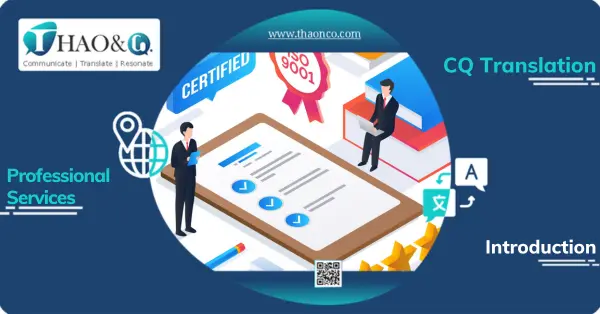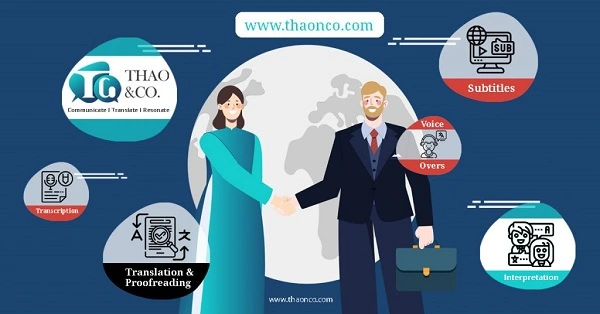The demand for international trade is increasing. Therefore, CO and CQ translation is important in reaching an agreement between parties. The translated certificates play a key role in facilitating customs procedures for both exports and imports.
In this article, Thao & Co. explains these certificates and how our notary translation process works so you can choose the best service for your needs.
CO and CQ are typically issued in the language of the exporting country and are essential for export transactions. Products accompanied by a CO and a CQ are eligible for importation. They are also deemed trustworthy, receive high ratings, and are more likely to be selected by customers.
The process of notarized translation for CO and CQ includes two stages:

After these steps, you will receive the finalized notarized CO or CQ translation which can be used for administrative procedures and export-import operations.
Translating COs and CQs into the language of the importing country helps business partners understand the contents. A good understanding serves as the foundation for successful business agreements.
In addition, the translated certificates also help local customers better understand the products, which enhances their trust as well.
Besides, notary translations of CO and CQ are also required in import procedures. Notarized translations assist local officials in understanding the contents of the certificates.
This allows them to certify the legal validity of the product. The product, then, can be cleared through customs procedures and authorized for global distribution.
Many agencies offer notarized CO and CQ translation services. You can check out:
• Translation Agencies: A professional translation agency employs qualified and experienced translators as well as specialists in notarial procedures.
Choosing a translation agency ensures the quality, legal validity, and timely delivery of your translation.
• Private Notary Offices: These offices mainly provide notarial services. Some private notary offices can also translate COs and CQs in common languages through collaboration with freelance translators. This could pose some challenges in ensuring the quality of the translation.
• The Department of Justice: Similar to private notary offices, public notary offices under the Department of Justice specialize in notarial services.
They also provide translations by working with freelancers. However, the turnaround time for their translations is typically longer than that of private providers.
COs, CQs, and relevant documents such as commercial contracts, bills of lading, customs declaration forms, certificates of insurance, etc. are used in export-import procedures.
Their contents are highly complex and necessitate extensive knowledge of economics and law.
Therefore, it is important to consider the following aspects when translating these documents:
When it comes to translation, you can get services on nearly any budget. Although cost is a significant consideration, it should not be the sole deciding factor.
When shopping for a translation service, make sure the provider can offer high-quality translations with quick turnaround times.

At Thao & Co., we provide comprehensive notary public translation services for all types of documents: get your papers translated and notarized with speed and precision.
With our years of experience, we can handle documents across a wide range of domains, guaranteeing accurate translation for CO and CQ of any product.
Partner with Thao & Co. for the peace of mind that comes with exceptional service:
Need CO or CQ translation for your product? Thao & Co. has you covered. Leave your information on our Get a Quote page for a free consultation today.